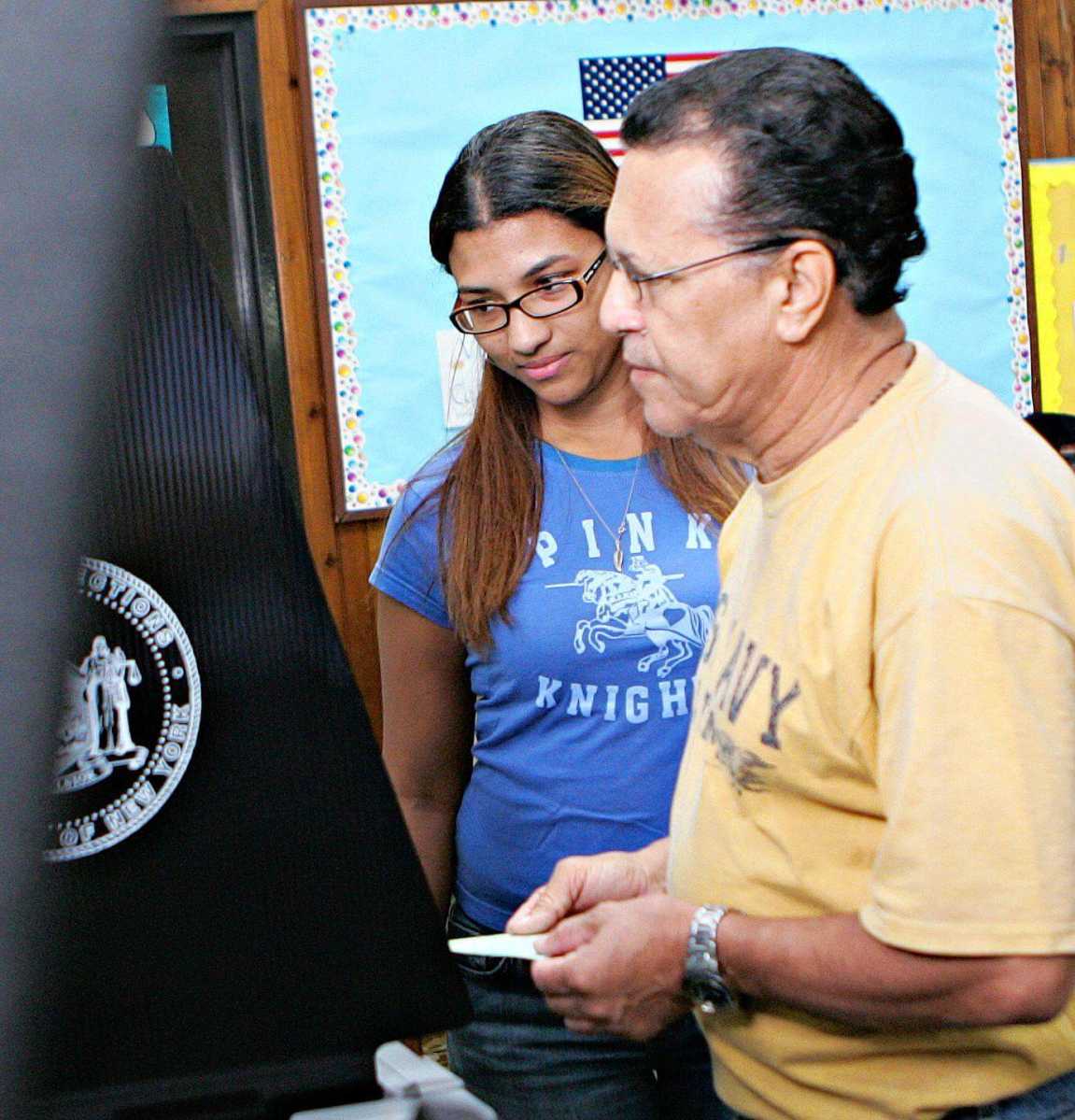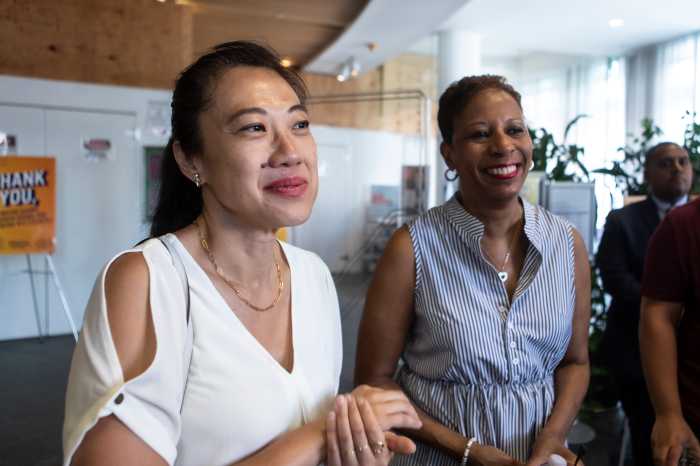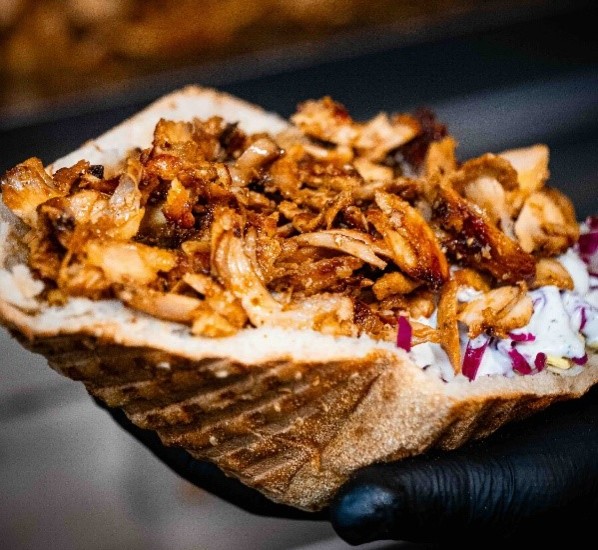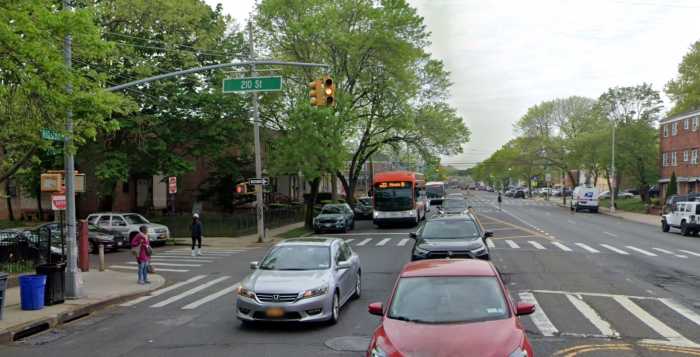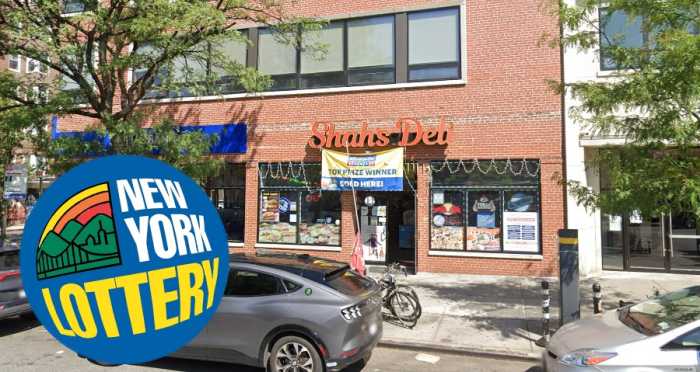By Anna Gustafson
Queens lawmakers said widespread problems with the new voting machines throughout the borough during last week’s primary have prompted them to look into the irregularities before November’s general election.
“New York decided to experiment with its new ballot in Tuesday’s primary elections, and the results were ominous,” said City Councilman Dan Halloran (R-Whitestone). “Numerous seniors told me they struggled to read the tiny type on the ballots. Other voters found their privacy compromised by the new machines.”
The new system, mandated by the federal Help America Vote Act, makes voters select their candidates by filling out ovals — something reminiscent of multiple-choice tests in school — on a paper ballot that is fed into a scanner.
The scanner then records the voter’s choice and the physical evidence of the ballot will remain — one of the main stipulations of the federal act, which was passed in part as a response to the confusion over the ballots in the 2000 presidential election.
Machines throughout the city malfunctioned to such an extent that Mayor Michael Bloomberg slammed the city Board of Elections’ management of Primary Day.
“We’ve got reports of broken and missing scanners, emergency ballots and poor customer service,” Bloomberg said. “It means some voters waited for hours, and other voters may not have a chance to cast their ballots at all.”
The BOE did not return a request for comment.
Halloran said after reports of “computer glitches” at the PS 209 polling site in Whitestone, he called on the BOE to fix problems with the machines and ballots, including a small font he said was difficult for people to read. Southern Queens was also hit with problems, including at the Springfield Gardens High School polling site, according to Councilman James Sanders (D-Laurelton).
“In my district, Springfield Gardens did not get voting machines until 3 p.m.,” Sanders said. “I don’t believe they were handing out paper ballots to people either. If this is true, then you have disenfranchised people because most people sadly will not come back.”
Councilman Jimmy Van Bramer (D-Sunnyside) said the machines at the Queen of Angels Church in Sunnyside were not functioning when he went to vote at 7 a.m., and he had to cast an emergency ballot.
“They’ve got to do better, and they’ve got to make sure the machines are working,” Van Bramer said of the BOE. “That means working machines from 6 a.m. on the dot to 9 p.m. on the dot, no exceptions.”
Kew Gardens resident Herb Gingold said that when he went to vote at the Richmond Hill Public Library at around 9 a.m., he found there were no voting machines there at all.
“I came back later in the afternoon, because I think voting is very important, and the machines were there and it was remarkably easy,” Gingold said. “But a number of people I know were not able to go back.”
State Sen. Joseph Addabbo (D-Howard Beach) said he continues to have discussions with the BOE about concerns his constituents aired over privacy issues.
“The poll workers weren’t sure if they were mandated to give each voter a privacy sleeve,” Addabbo said. “Some voters got the sleeve, others did not. We’re impressing upon the Board of Elections that all voters should get the privacy sleeve.”
Addabbo, who chairs the Senate Elections Committee, said he plans to hold hearings later this month to discuss and identify problems.
Reach reporter Anna Gustafson by e-mail at agustafson@cnglocal.com or by phone at 718-260-4574

